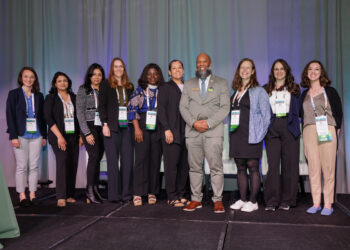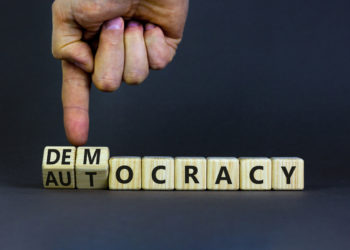Like so many of you, I was hugely grateful to make it to SSP 2022 in person (even if I was enormously jetlagged and surviving on caffeine fumes). But I’m an old hand at these meetings and today we’re going to hear from this year’s SSP fellows. For those of you who don’t know, the SSP Fellowship program provides leadership opportunities and mentoring to early career and student members of SSP. Check it out – it’s an awesome program! It’s also funded by the Generations Fund so I’m also going to put in a plug and ask you to donate to this if you can – and/or bug your organization to do so!
I asked this year’s fellows to share with us the highlights of SSP 2022 for them. Reading their responses below leaves me with three clear takeaways:
- The program committee, session organizers, presenters, poster peeps and SSP staff did an awesome job in creating engaging, productive educational sessions and discussions for all of us. THANK YOU ALL!
- One of the hallmarks of SSP is that it’s a warm and welcoming community for people across scholarly communication, whatever your organization, role or other identities. It’s great to hear this confirmed by our fellows and something we should all be proud of.
- The future of our industry is in good hands! The 2022 fellows are (again!) a group of smart, thoughtful people who are undoubtedly going to make big contributions to our ever changing industry and the challenges ahead.
Please enjoy their observations as much as I did.

Kevin C. Jewett, The Journal of Pediatrics: The highlight of attending the 2022 SSP meeting for me was the opportunity to meet and interact with the other Early Career Fellows. Hearing about everyone’s path to a career in scholarly publishing is so interesting, especially since so many of us found our way here from different fields. The whole group meshed really well, and I’m excited to keep in touch with the other Fellows and I can’t wait to see where our careers take us.
I also enjoyed getting to meet my poster team in person. Some of us were a little nervous about putting a poster together in a few months and working with people that we had only just met. In hindsight, I’m so glad that this was part of the program. When I arrived in Chicago, I already felt like I knew two people really well since we’d been meeting virtually every few weeks. For many, if not all of the Early Career Fellows, this was our first SSP meeting and maybe our first professional conference. It takes a lot of pressure off to step into a session room or the exhibit hall and see a friendly face!
Dylan Ruediger, Ithaka S+R: For me, the highlight of the 2022 SSP annual meeting was the lively and highly interactive discussion at my panel, From Conference Presentation to Content Stream?: Speculations about the Future of Academic Meetings and Scholarly Communication. Originally conceived as a roundtable that would have featured editors, vendors, and scholarly society staff, we had two panelists drop out at the last minute – a reminder, if we needed one, that the pandemic is still an ongoing threat to public health. The three of us who remained on the panel – myself, Danielle Cooper of Ithaka S+R, and Violaine Iglesias of Cadmore Media – decided to turn the panel into a seminar style event focused on comments and discussions from the audience. The resulting discussion brought out exactly what makes SSP such an interesting meeting. We had a mix of nonprofit and for-profit publishers, librarians, entrepreneurs, and scholarly society leaders, all in the room and willing to engage in vigorous discussion and problem-solving about an emerging topic in scholarly publication. A second major highlight was getting to meet the other SSP Fellows in-person, particularly Eliana Munro and Kristine Krebs, my collaborators on our poster submission.
The SSP community truly is such a supportive one, and I’m keen to get involved and give back as best I can in the coming years!
Hannah Harwood, Taylor & Francis: I’d like to start by mentioning how wonderful it was to be in person for SSP 2022! I came away feeling energized and inspired by the array of this year’s sessions and the conversations being had. The opening keynote from urban historian Sherman ‘Dilla’ Thomas (check him out @6figga_dilla!) was a fantastic introduction to the city of Chicago, while reminding us of the importance of including diverse perspectives and lived experiences in all we do as a community. On the same thread, it was encouraging to see many sessions delivered through the lens of inequity as we all try to navigate the changing scholarly publishing landscape and create an even playing field for all stakeholders.
Another highlight was the Charleston Trendspotting session Forecasting Changes on the Horizon of Scholarly Communication, led by Lisa Janicke Hinchliffe. This interactive session had attendees considering impactful technologies that are likely to change the way we work as publishers in an increasingly automated world. These futures thinking perspectives were prominent throughout the meeting, and particularly so in Friday’s session on Expanding Membership, Reach and Impact: Striking the Right Chord with Millennial and GenZ Researchers. This left me with plenty to reflect on as we continue to innovate as a community throughout the publishing life cycle and pivot for the next generation of contributors and end users.
As an Early Career Fellow, I am incredibly grateful to have had the opportunity to attend this year’s meeting and make so many new connections. I had a blast and learned so much of value. The SSP community truly is such a supportive one, and I’m keen to get involved and give back as best I can in the coming years!
Lillian Wang Selonick, PNAS: SSP 2022 was a whirlwind of ideas and new people. The sessions were fantastic, and it was great to discover all the little connections between everyone I met and myself. Scholarly publishing is such an interconnected community. For me, the high point was the delight of repeatedly realizing that we were all speaking the same language — I was free to go off on little rants about niche, nerdy publishing topics and everyone understood me! The poster sessions especially sparked some great, in-depth conversations. Trying to discuss a fine point about Plan S or peer reviewer demographic data collection at parties is usually not very well-received…
Another highlight was connecting in person with my PNAS colleagues whom I’ve only seen on Zoom. Chicago is the best food city in the country, and I got to demolish an obscene amount of excellent dim sum at MingHin with Yael Fitzpatrick from PNAS (and co-chair of the Annual Meeting Planning Committee!). Although I’ve adapted very well to my work-from-home environment and I love the flexibility and productivity that I gain from losing a commute, there is something special about connecting with people in 3D. I’m grateful to have had this opportunity at SSP 2022. I can’t wait for Portland in 2023!
Kate Lavallee, Oxford University Press: This was my first SSP Annual Meeting, and one I will never forget. I’m so grateful I was able to attend the first in-person meeting in two years. There was definitely an energy I think was unique to the time and place. I was struck by just how happy everyone was to be there and connect in person again! The meeting truly lived up to this year’s theme of “Building a More Connected Scholarly Community.”
All the sessions and networking opportunities did a great job of highlighting the importance of community, connectivity, and accessibility. For example, the first Educational Session I attended was called It Takes a Scholarly Publishing Village and discussed how everyone in every part of the scholarly publishing community is impacted by the need for inclusion. My takeaway is that it’s up to all of us to solve the big and often difficult questions surrounding it. Collaboration and connection are key.
Other standout sessions I attended included Ethical Science Communication to the Public: New Concerns for Societies and Publishers and Open Science and SDGs: Harnessing Open Science to Address Global Issues. I really liked that these sessions connected what we do in our profession to the outside world. They made me realize that accessibility is also about making the very academic and paywalled content we publish easily digestible to the public: anyone should be able to easily read and understand it. Together, we should be able to apply this knowledge to the real-world problems that the SDGs are trying to tackle. This all goes back to community and sharing knowledge to better all of us, not just those who are privileged enough to access and apply it within small academic bubbles.
It was truly exhilarating to see how all the moving parts of scholarly communication interact and to feel so welcomed and connected to a much larger community than I had imagined.
Jenny Stein, AIP Publishing: Nothing could have prepared me for such a sense of interconnectedness at SSP 2022. I began my career in publishing at AIP Publishing during the peak of pandemic social isolation and with a shift to flexible fully remote work, I still haven’t met most of my co-workers in-person and sometimes feel rather isolated. You can then imagine what an overwhelming experience it was to suddenly interact with so many people with common goals and shared excitement.
It is difficult to describe the rich diversity of topics and discussions that were equally thought-provoking and compelling, so one aspect I’ll highlight was the focus on how scholarly communication is adapting to new technology and shifting demographics through social media platforms. This is a topic I am personally drawn to, which I like to think relates to my experience launching into publishing as a remote employee. Perhaps that has instilled a certain empathy to help contribute to personal and meaningful virtual communities and networks with our authors and readers since I have relied heavily on these outlets during the pandemic. Many sessions echoed the same theme – social media plays a huge role in how we communicate within our various communities and no single platform has the solution to reach across age, country, and research field, so diversifying our efforts to meet the needs of authors and readers is critical. The sessions I attended involved discussions on how to engage authors in China through WeChat, how Millennials and Gen Z interact with technology (which Charlie Rapple has already summarized part of in a recent Scholarly Kitchen post!), and how to increase content syndication through ResearchGate. For the cherry on top, one of the keynote talks was given by Shermann “Dilla” Thomas, a Chicago local with infectious energy who uses TikTok to teach Chicago history. He challenged us as gatekeepers of scholarly communication to ensure research is shared in an accessible manner for the betterment of society.
With all of that said, it is a huge privilege to be able to discuss the evolution of virtual communities in-person! A huge thank you to the SSP fellowship program for supporting early career professionals and making this experience a possibility. It was truly exhilarating to see how all the moving parts of scholarly communication interact and to feel so welcomed and connected to a much larger community than I had imagined.
Rebecca Kitchin, BMJ Open: The SSP 44th Annual meeting certainly succeeded in building a more connected scholarly community and provided an incredible opportunity to learn and collaborate with members from across the community. I would like to thank the conference organizers, Fellows committee and everyone who has supported the program for all their hard work in making this event a reality, both in-person and virtually. Connectivity was a strong theme throughout the conference, and many speakers stressed the importance of this in relation to streamlining access to scholarly resources. It was interesting to hear this discussed within the context of open access models and what can be done to create more author-centric content.
The excellent opening keynote by Shermann “Dilla” Thomas reminded us of the importance of discoverability and accessibility in information dissemination, which got me thinking about equity in open access and what more needs to be done to achieve this. I found the talk Everything you ever wanted to know about the most common OA agreements particularly insightful and feel Sara Rouhi perfectly highlighted how inequity can persist even in the OA landscape. Her quote “fundamentally a paywall is a paywall, whether you’re making an author pay or a reader pay” referred to the shift from subscription to open access-based publishing models.
I’m so grateful to have had SSP 44th Annual meeting as my first conference experience and to be a part of the wonderful community of Fellows.
I have realized the importance of communication and collaboration among stakeholders in scholarly publishing to build a more diverse, transparent, inclusive and equitable open science ecosystem.
Saumya Gupta, PhD Scholar, University of Delhi: I had an incredible experience as a first-time attendee of the SSP Annual Meeting. I gained knowledge by participating in sessions focused on the open access agreements and the potential use of the OA Switchboard to improve the workflow efficiency. I have realized the importance of communication and collaboration among stakeholders in scholarly publishing to build a more diverse, transparent, inclusive and equitable open science ecosystem.
Another topic of discussion I found interesting was the adoption of AI technologies in scholarly publishing. AI has the great potential to improve and bring efficiency to scholarly publishing. However, there is an apprehension about the negative impact of AI technologies due to their human and ethical implications. It was a thought-provoking session about how we want to move forward with these technologies. It was also intriguing to learn about several new, technology-driven and innovative industry products that could be leveraged by the scholarly publishing community. It was great to learn that scientific publishing is addressing climate change which is a critical issue in current times. I learned from the perspectives of both librarians and vendors regarding privacy concerns due to cookies usage and how to address user privacy where some functionalities require personal information for a better user experience and services. It was insightful to learn from Lisa Janicke Hinchliffe about the concept of minimal viable privacy that libraries can use to evaluate their vendor contracts. It will force libraries and organizations to think critically about their role in protecting users’ privacy.
The SSP meeting gave me the opportunity to listen to new ideas and perspectives and developed a broader understanding of the scholarly publishing landscape. I will try to implement my learning and knowledge in my work as a library science graduate and a researcher.



